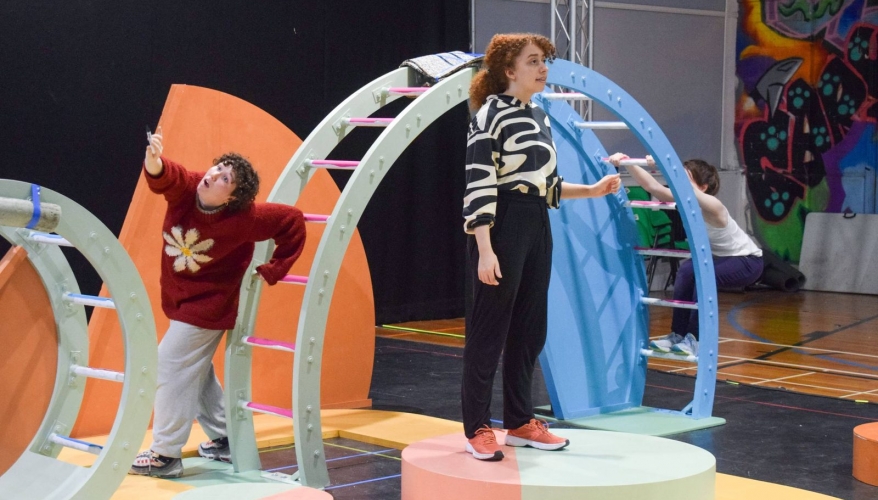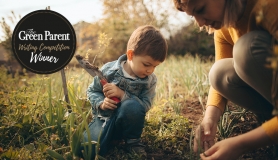In the last few years alone, young people will have seen or heard about the Black Lives Matter protests after the murder of George Floyd in 2020, the School Strikes for Climate started by Greta Thunberg in 2018 and the UK with Ukraine marches in 2022. It will be impossible for them to ignore teachers’ strikes this year.
It’s been predicted that people born from 2010 onwards - will be one of the most socially-conscious and most “online” generations to have ever lived. There’s research that shows, even at this early stage in their lives, these young people are developing strong opinions about the world and are already showing a desire to create real societal change. Age really is just a number when it comes to activism.
As adults with young people in our lives, it’s important we don’t shy away from talking about what’s happening in the world. Teaching our children about injustices in our communities can empower them to speak out against sexism, racism, and environmental issues. This knowledge can help them identify and challenge these problems in their everyday lives, be that on the playground or in their communities - giving them the support they need to make a better future for us all!
Playwright Hannah Lavery’s latest play Protest opens at Northern Stage in Newcastle this month and was inspired by conversations with young people who shared with Hannah their hopes and worries for the world, “In talking and working with young people from this age group I was struck by their passion for social justice and their anxiety around the climate emergency and the impact upon their future. The play is really therefore a response to those conversations, and I hope a provocation to us all to find ways to support young people.”
- Don’t be shy, start the conversation
Parents can start conversations with their children without waiting for them to ask questions.
This is important because you won’t always know what children may have seen or heard online, on TV or the conversations they’re having at school.
This is a chance to make sure your children get an accurate picture of a particular issue, whether it’s something in the news or something they’re encountering for the first time.
“In Protest, three young girls deal with injustice for the first time; how they respond to that, the support they get from their family and their eventual realisation that they can fight back, make things better - that they don’t have to accept a world that is unfair, is how we want every child to feel,” said Natalie Ibu the Artistic Director of the north east theatre Northern Stage where new play Protest is showing.
Starting conversations based on news articles, books, films or theatre is a great opportunity to empower young people with the knowledge they need to navigate the world, and start to show them how one person can make a difference!
2. Be honest and open, share what matters to you
When talking to children about activism, be honest and open, sharing what matters to you and being open to hearing what matters to them.
If you can share your own experiences of injustices, how it made you feel and how it might have shaped your life or decisions, it can help your child to make sense of their own developing ideas.
Equally, it is important to understand and accept that children may have different priorities than you based on their own personal experiences. Letting them know that their feelings are valid, even if they may not be the same as yours, will help them to form their own worldview, creating a solid foundation from which they can learn about life and develop values.
Editor, Melissa Corkhill reflects on encouraging children’s unique value system, “When my eldest was 12 they decided they wanted to become vegan. I thought that supporting them to eat healthily by cooking for, and with them was enough. One day they explained to me that it was making them feel uncomfortable that there was meat being prepared in our family kitchen. We needed to work out ways to help them feel respected and that their voice had been heard. Having those tricky conversations about differing needs helped all of us with our communication skills!”
3. Learn together, explore other viewpoints and experiences
As well as drawing on your own experiences, exploring and talking about other viewpoints is important for understanding and empathy.
You might need to do some learning too, and doing that with your child is a great way to level the playing field. The organic conversations that come from this can be helpful to understand the struggles of different genders or global communities severely affected by the climate crisis.
“I am really into the idea of lifelong learning; our bookshelves are stuffed and I love a documentary film, especially one that I can share with my kids,” explains editor, Melissa Corkhill. “I’m also a great believer in including children in campaigning for the issues that matter. All my kids, even the two-year-old came on the Black Lives matter protests in 2020 in Brighton. My eldest is involved with JSO and we have protested together in London and Brighton.”
4. Always find hope, never lose sight of the end goal
The major issues that dominate the news, from the climate crisis to racism, are huge topics. It might be difficult to know how to talk about these things without distressing your child.
Helping them to envisage the world they want to live in, to talk about the things that would be different or better is important.
“I’m a firm believer in not sugar coating the issues for kids,” editor Melissa Corkhill explains. “A great book that deals with the climate crisis in an upbeat, yet realistic way is Bright New World by Cindy Forde. It’s full of hope and doesn’t shy away from the cold, hard facts that we are faced with today.”
Identifying the things they can do to make change and support causes they care about gives a sense of purpose and lets children unleash their imagination too.
5. Find ways to get involved, be creative
At first, activism can seem like something that requires a lot of knowledge and resources. But anyone with a passion for change can do it - no matter how old you are.
There are many ways for children to get involved in activism on a local level, from a crafting session to make protest signs, to volunteering with local charities and organisations, starting fundraising events, writing to a local MP or newspaper and participating in peaceful protests.
“In a world that can sometimes feel complex, and confusing and scary, it’s important to be reminded about how the small things you can do, can create big change,” says Natalie Ibu.
“Every young person needs to know, you have the power to create the world you want to live in; find your people and follow what matters to you. Hope plus community equals change!”
MORE RESOURCES
BOOK TICKETS to see Protest, on until 6th May at the Northern Stage at https://northernstage.co.uk/whats-on/protest/







